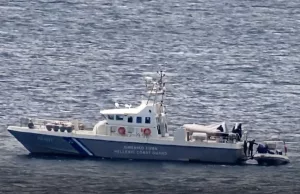When Vladimir Putin attacked Ukraine on February 24, 2022, a refugee crisis was born. The refugee dilemma began when both Ukrainian and Russian refugees initially attempted to seek asylum and escape the war outside of their home countries.
Russian soldiers apply for asylum in Alaska
On August 22, one of the first incidents regarding the crisis that made international news occurred. On this day, two Russians who were avoiding military service arrived on a remote island in Alaska. At the time, one of Alaska’s two senators stated “Federal authorities are to be encouraged to have a plan in place in case more Russians flee to Bering Strait communities in Alaska.” After news of Russian soldiers escaping military service broke and the situation began to be taken more seriously, the public started questioning whether these Russian nationals should be granted asylum.
Russian refugees apply for asylum in Germany
In the case of Germany, people have openly shown their disapproval of the country’s acceptance of Russian soldiers. Others have pointed out the tense atmosphere in cities where both Russians and Ukrainians have been granted asylum. Kateryna Rietz-Rakul, a Ukrainian national who has lived in Germany for 20 years, voiced how Germany taking in Russian deserters is a bad joke. She expressed “I thought this can’t possibly be true, I couldn’t believe it at first. Until I watched the evening news.”
In addition, Rietz-Rakul does not believe that a security check is enough to be able to really know what a Russian refugee’s intentions are for coming to Germany. She said that they could easily cover up their past or present motivations because they are a part of the “privileged middle class.”
On the other hand, the Parliamentary Secretary of the green party, Irene Mihalic, is of a different opinion. She explained that anyone who does not wish to take part in Putin’s war, which is contrary to international law, should be able to obtain asylum in Germany.
France joins the discussion
Another European Union country joined the discussion, on July 20. According to The Daily Express, “The French National Court of Asylum (CNDA) announced that it is able to grant refugee status to Russian army deserters seeking asylum in the country.” As to The Court’s reasoning, they have explained that Russian deserters should be granted asylum on the grounds that they do not commit war crimes under the government’s orders in Russia.
What does international law say?
Tom Dannenbaum, an Assistant Professor of International Law at the Fletcher School of Law & Diplomacy, and the author of The Crime of Aggression, Humanity, and the Soldier published a study on whether states have an obligation under international law to grant Russian deserters asylum. Part of the study highlights the practical application of the European Union Council Directive 2011/95 (arts. 9(2)(e), 12(2)(a)), which specifies the qualifications to be a refugee. Part of the directive reads: “prosecution or punishment for refusal to perform military service in a conflict, where performing military service would include crimes or acts falling within the scope of the grounds for exclusion.” According to this directive, Russian soldiers have a right to apply for asylum.
Furthermore, in addition to recognizing soldiers as refugees, states must also cooperate to facilitate their protection. States around the world have a legal obligation to protect refugees, which in this case are fleeing punishment for refusing to participate in an aggressive war.
Featured image by: Arkady Budnitsky






